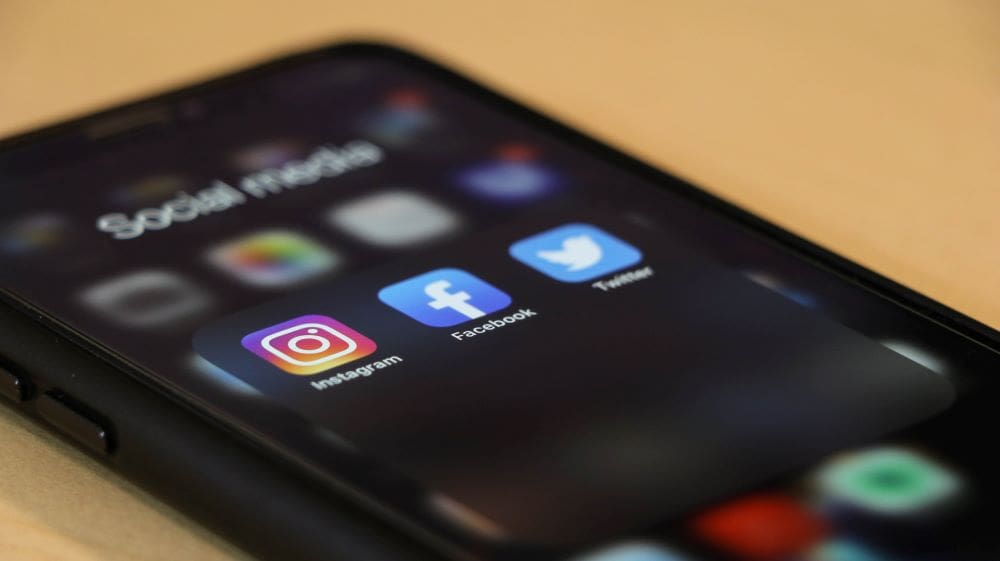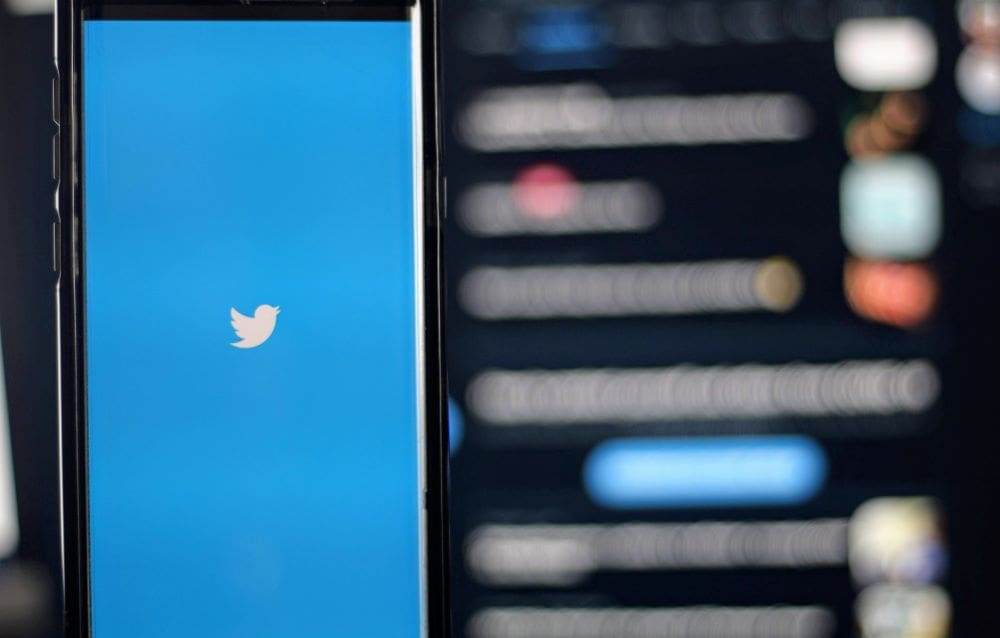
When you are creating a marketing campaign or social media strategy, it can be a bit overwhelming if you don’t have a bunch of information to get creative. Thanks to social media monitoring tools, combined with a social listening tool, they can make a huge difference in your strategy. With social media monitoring vs social media listening, you will be able to uncover raw data, just by gaining new insight on social channels.
With these methods, you can ramp up your customer care game and take a proactive approach to your business goals.
Knowing exactly what your customer needs and finding out customer experiences you didn’t know about before can give you the deep insights you need to thrive.
Let’s explore what each is and then why they are important. We will then recap on the key differences between the two (because, yes, you need both).
What is Social Monitoring?
Social media monitoring is important to any online business; you can find everything that is relevant to you and your brand. You may think social media monitoring is just about watching for comments, shares, likes, and comments; however, it’s more than that. If you’re just focusing on those areas, you’re missing out on discussions in your industry, and more importantly your brand.
With social media monitoring, you can offer superb customer service because you will be able to answer the questions they have directed towards your product or service. You likely won’t be tagged in these posts, so they will appreciate the engagement you are providing. Even if it’s just a question about your industry in general, you can build trust by answering questions like this.
Let’s say you go to Facebook and type in a hashtag or keyword that relates to your product or service, you can find what is trending, and get involved in the conversation.
If you have social media monitoring tools, it can be less time-consuming to keep track of everything that is relevant to your business. With the tool, you won’t have the hassle of going through each social network, searching individual tags, and so on.
Why is Social Monitoring Important?
Social Monitoring is important to business for several reasons, but the top reason is all about conversations. You may be surprised at the number of people who have mentioned your brand in their social media posts at one point. You can gain valuable information about trends and the needs of your industry by monitoring your customers, competitors, and prospects’ conversations on social media.
Just for an example — Think of a time you were a customer to a product or service. What was your service like when you made a post about it? Or if you didn’t, you likely know someone who has.
Other than conversations, your business can significantly benefit from social media monitoring in three ways:
1. Customer Service
Exceptional customer service has always been about putting the customer experience first. Your customer expectations must be your top priority to grow your brand loyalty. Several studies show that customers are more apt to continue purchasing from a company that replies to their posts. The reason is this builds trust and brand reputation. Customers feel heard when you reply to their posts or comments.
If questions or complaints don’t get addressed, it can make their experience turn negative. Even if someone did have a negative experience with your brand, the way you respond matters and can change the entire situation around. It’s important to handle situations in a timely manner.
The faster you can help an unhappy customer with negative mentions, the quicker you may still be able to turn them into a loyal customer. Even if you don’t turn them into a customer; don’t worry, the people reading your interactions in the comments will see you truly care about your customer care.
Make sure you stay up-to-date on how people talk about you on each social media platform. When you are using Instagram or Twitter, remember you can search by hashtags to find posts relative to your brand.
2. Generate New Leads
It’s common for people to research products and services on social media just as much as they do on search engines now. This is ideal for you because you can identify potential customers easier. There are a few different types of keywords you should be monitoring at all times:
Industry Keywords
An industry buzzword or keyword will describe a service or product your company sells. For example, if you have a pet supply company, you may use “pet bed”, “pet food”, “pet diet”, “cat tree”, “dog house”, and so on. With those specific “buzzwords”, you can add them to your posts and even search them to comment on people’s posts.
Brand Keywords
A brand keyword is one that relates to your brand, including your product name and company name. Some people may even misspell keywords wrong on purpose to track them in case a customer misspelled it, especially if you have a hard name to spell.
Location-Specific Keywords
If your business has a physical location, you can also track keywords that are popular within the area. For example, “best pet supply company in Louisiana”.
Competitors
Monitor keywords related to your competitor. It lets you know how they’re doing, what people like about them, what people might not like, etc. Be there for the opportunity of their potential lack of understanding their customers.
Of course, it’s not okay to go steal other people’s customers but if they aren’t happy with something, you may be able to offer them what the other company is lacking (and that’s okay). There are enough customers to go around, and each person will find something they like about one competitor over the other.
3. Get Feedback
When you monitor conversations on social media channels, you can gain some insight and fresh ideas on how to better your product or service. Listening to social media users and customer interactions is the best way for collecting data.
This is one of the ways to get the best type of feedback and should be involved in your marketing campaigns. Whether the feedback on your brand mentions is positive or negative, it can help you for customer satisfaction.
4. Identify Advocates and Influencers
Influencers are an important part of a social marketing strategy. Social mentions through social media posts are highly valued by influencers, especially if they are well-known in the industry.
While customer posts are also valuable, you want to make sure you don’t only have customer feedback. Influencers have brought companies a significantly higher ROI by being part of their broader strategy.
To find the best social media influencer for your company, you need to gain insights by tracking influences within your brand’s industry. See who has a large following, and make sure their fans are your target audience.
You can find them by searching hashtags and keywords relevant to your business. Working with an influencer is one of the best business decisions you can make as long as they are reputable, and people trust them.

What is Social Listening?
Thanks to the fact most people use social media, you can tap into valuable insight from your customers and potential customers. Before, companies would gain insight through surveys and other ways from their target audience; you have it much easier. There are billions of posts on Facebook every day, around 6,000 tweets are sent every second on Twitter, and a whopping 200 million people view the Instagram “explore page” daily.
You have so many opinions, comments, and questions about your brand that you may not have even known about. Don’t feel alone; a lot of companies don’t even know they can do this, or maybe they just don’t want to, but that’s what will bridge the gap between you and your competitors.
Social listening is all about analyzing relevant social data from your target audience, your competitors, and your target market. As you gain insight into this data, you will be able to create a long-term strategy for your marketing campaign.
Sure, Twitter may tell you when someone mentions you in a Tweet; however, what you don’t know is when someone mentions you without tagging you. You may be missing out on crucial information. Whether the person forgot to tag you or not, the brand mentions could change the entire game for your business, but you don’t even know what’s being said about you without using social listening tools.
Why Is Social Listening Important?
Social media listening is important to your brand if your hashtag or business name is spelled wrong, or if people just don’t tag you. A social media listening tool can help you be more proactive in your customer experience.
You don’t want to miss out on social media listening for the following top five reasons:
1. Customer Service and Brand Reputation
It doesn’t matter if your B2B, B2C, or if you’re a nonprofit, what people say about your brand or organization is important. It’s much better to let a social listening tool help you find any positive reviews or even complaints about your business before someone else tells you about an unhappy customer. It’s best to find out first and provide general customer sentiment. Let them know you care, and you want to resolve the issue promptly.
2. Powerful Campaigns
The data you find out from social media listening can help your social media strategy. You can create an effective marketing campaign by having all of this data ahead of time; it takes a lot of guessing out of the equation, making your job a bit easier on you.
Not only will you be able to see social media data on how customers are happy -or have concerns- with your product or service, you will also be able to form new relationships with potential customers.
Social listening is important because it can keep you up to date on the changes with trends and emotions in your market. Be on the lookout for different trending hashtags and movements. Your target audience will see it and respect you. The new trends can provide you with insanely genius marketing campaigns.
3. Customer Insights
As you are developing your social media analysis, you will have a better overall understanding of your audience. Without the insights, you’re kind of just guessing and hoping for the best. The insights give you a running chance and give you an edge over your competitors because you already will have the data.
This method can also be used to figure out more about your target audience, or even your competitor to see which content and hashtags are the most effective. You will know exactly what type of content to create because you will have the data of what your target customer responds to., which will drive up your engagements effortlessly.
4. Good Influencer Partnerships (Social or Journalist)
You can use social listening tools as part of your social strategy to find the most influential social influencers and journalists in your industry. You can search things like Twitter bios and tweets, along with other social media platform bios and mentions to find new contacts and build relationships with them.
You can also find other social media influencers like YouTubers, bloggers, Twitter, Instagram, Facebook, and forum commentators within your market. When you build relationships, you will have the ability to build a stronger social influencer strategy through the valuable data you gained.
5. Engagement
Every business strives to build successful social media platforms. No matter what your industry is, every marketing campaign has a similar end result which is to create engaging content to improve interactions and growth. With social listening, you can build and create a social media community by replying to mentions that aren’t tagged and using the insights as part of your strategy.
So, What Exactly Is The Difference Between Social Media Monitoring vs Social Media Listening?
The easiest way to understand these two definitions is to take out the word “social” and focus on the last word: monitoring vs listening. With social monitoring, it’s more about watching and keeping track of progress. Listening is more about hearing mentions, interpreting, and then providing understanding.
Both social media monitoring and social media listening are incredibly important to campaign performance; with both, you can gain actionable insights, uncover trends, and provide community management with your target audience.
Social monitoring is great because you can check out what consumers are saying about your brand, campaign, or company. Social listening considers the brand mentions and broader social trends and conversations to uncover insights that can turn into a powerful tool for campaigns and reputation.
So, Now You Understand Social Media Monitoring vs Social Media Listening
While social media monitoring vs social media listening may sound a bit similar, they have their key differences. With each of these methods, you can gain insight into negative mentions from unhappy customers, learn about what customers love about your when they leave a positive review, find out which review sites may be talking about you.
Finding out this information is critical for your brand; you can address all comments, increase engagement and fix what customers may not like, while emphasizing what they love about you.
Looking for other ways to monitor your online reputation? Check out this blog post here.
You might also like
Remove Images from Google: The Ultimate Guide
Monitoring your social media campaigns is basic but, are you listening? Here we go over social media monitoring vs social media listening.

